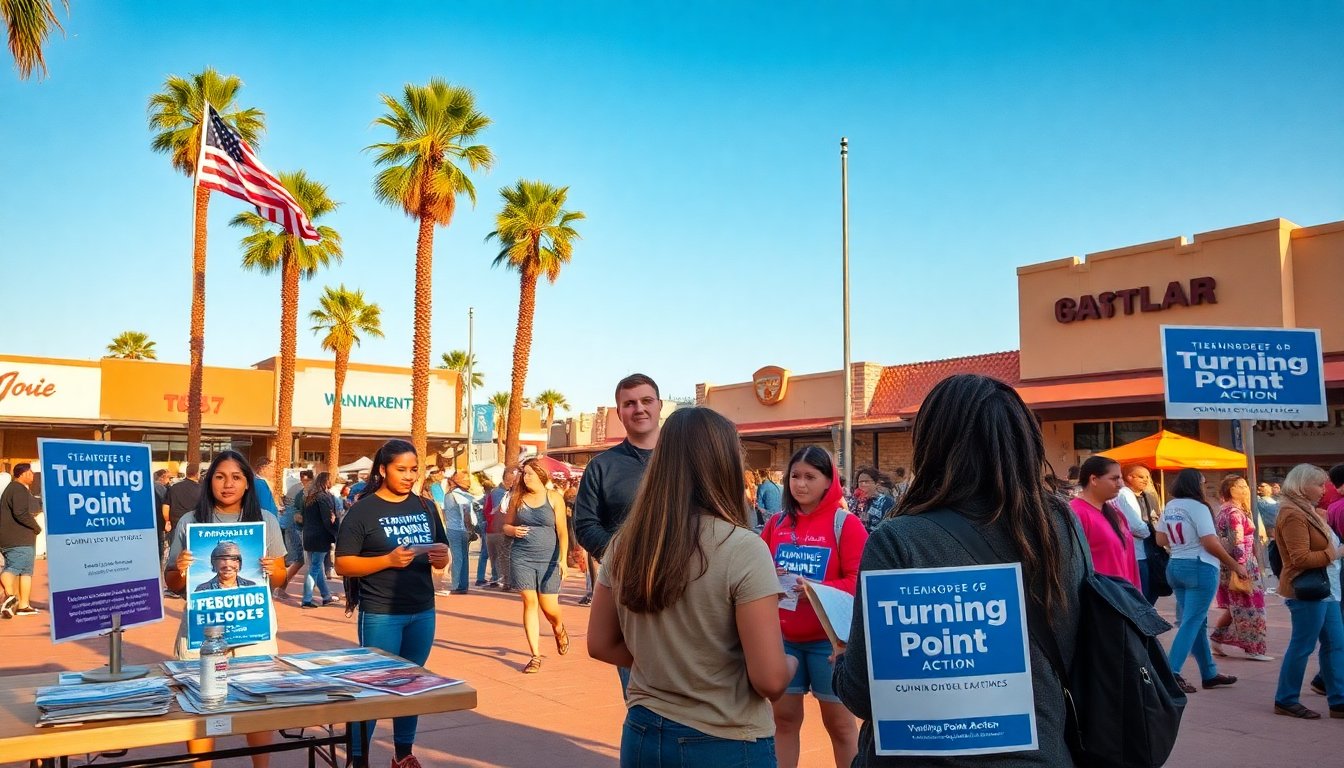Table of Contents
In the vibrant city of Mesa, Arizona, a local council race has evolved into a significant reflection of broader national political ideologies. The recent activities of Turning Point Action, an organization founded by the late Charlie Kirk, have attracted national attention to this local election. Their initiatives aim to showcase the organization’s ability to thrive independently of its founder, who played a pivotal role in shaping conservative youth perspectives across the country.
As local Republicans encounter mounting scrutiny, the stakes in this election have heightened. A key point of contention involves a sitting council member who has openly endorsed Kamala Harris, sparking intense debates within the community. This development has intensified the political atmosphere, compelling local candidates to navigate a complex landscape of national sentiments while striving to maintain local support.
The rise of Turning Point Action
Turning Point Action has emerged as a significant player in Arizona, aiming to address the gap left by the passing of Charlie Kirk. The organization seeks to galvanize support for conservative candidates who share its vision. Its strategy focuses on utilizing national issues to engage local voters, thus linking local political dynamics with national conservative objectives.
The impact of national politics on local governance
This strategy prompts important discussions regarding the role of national politics in local governance. The choice to nationalize the election in Mesa has elicited both support and criticism. Local voters now face the challenge of balancing their community’s specific needs with the overarching ideological conflicts present at the national level.
The actions taken by Turning Point Action indicate a notable change in the approach to local elections. The organization’s strategy to recall council members who do not align with its conservative values highlights its aim to influence the political environment in Arizona. This raises a critical question: can local governance remain resilient against the pressures of national political movements?
Community responses to the election turmoil
As the election date approaches, community members are sharing a range of reactions to the ongoing situation. Many residents express concern over the potential for increased division within their neighborhoods. The recall of the council member who supported Vice President Harris has ignited discussions about how such actions could affect community unity.
Voices from Mesa
Local residents have expressed their concerns regarding the current direction of the election. Some argue that an emphasis on national issues diverts attention from urgent local matters, such as infrastructure and education. Conversely, others view the involvement of Turning Point Action as a vital catalyst for change, believing that enhanced conservative representation could benefit the community.
As the political landscape shifts, the community remains divided. Many locals share feelings of frustration, claiming that their voices are being overshadowed by national narratives. The increase in political activism within the area prompts significant questions about the future of local governance and the potential for ongoing political conflicts.
The trending moment
Expert insights
Featured brands
The events unfolding in Mesa exemplify the broader trends influencing local elections throughout the United States. National organizations such as Turning Point Action are actively shaping political narratives, resulting in a shift in governance dynamics. Their efforts to recall council members and promote specific visions may have long-lasting impacts on the community.
As residents prepare to vote, they face the challenge of reconciling national influences with local needs. The future of Mesa’s political landscape will likely mirror the ongoing struggle between local autonomy and national ideology, prompting residents to consider the implications for their community’s identity.


